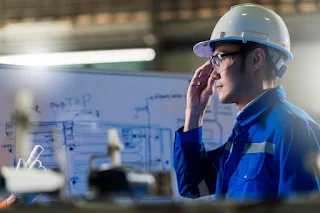
Innovation is the cornerstone of the engineering industry, driving progress, efficiency, and sustainability. As industries worldwide navigate through unprecedented challenges and opportunities, the engineering sector, with pioneers like Bendtech Group, stands at the forefront of innovation. Today, we'll delve into some of the most innovative trends shaping the engineering industry, from advanced manufacturing techniques to sustainability initiatives.
Advanced Manufacturing Techniques
Advanced manufacturing techniques are revolutionizing the way products are designed, prototyped, and manufactured. Engineering companies are leading the charge by embracing cutting-edge technologies to enhance manufacturing processes. Leveraging precision bending, machining, welding, and fabrication, Bendtech Group exemplifies how technology can elevate manufacturing standards and product quality. By adopting state-of-the-art equipment and expertise, they deliver bespoke solutions tailored to diverse industry needs. Embracing advanced manufacturing techniques not only streamlines operations but also fosters innovation and competitiveness in the engineering landscape.
Artificial Intelligence and Machine Learning

The integration of artificial intelligence (AI) and machine learning (ML) is transforming engineering practices across various sectors. AI algorithms analyze vast datasets to optimize designs, predict equipment failures, and automate routine tasks. ML models enable engineers to make data-driven decisions and iterate designs more efficiently. From predictive maintenance in industrial machinery to autonomous vehicles and smart infrastructure, AI is revolutionizing how engineers approach problem-solving. By harnessing the power of AI and ML, engineers can enhance productivity, improve safety, and drive innovation in the engineering industry.
Sustainability: A Paramount Concern for Engineering
Sustainability has become a paramount concern for the engineering industry in response to environmental challenges and regulatory pressures. Sustainable design principles are being integrated into infrastructure projects, buildings, and manufacturing processes. From energy-efficient buildings with green rooftops to renewable energy systems harnessing solar and wind power, sustainability is now a fundamental aspect of engineering innovation. Companies are investing in research and development to create products and technologies that minimize environmental impact and promote a greener future. By prioritizing sustainability, engineers can drive positive change and address global challenges such as climate change and resource depletion.
Electric Vehicles: Driving a Sustainable Automotive Future
The rise of electric vehicles (EVs) is driving a seismic shift in the automotive industry towards sustainability. As concerns over climate change and air pollution mount, traditional internal combustion engines are being replaced by electric propulsion systems. Engineers are at the forefront of this electrification revolution, developing next-generation batteries, electric drivetrains, and charging infrastructure. The rise of EVs presents not only engineering challenges but also opportunities for innovation in areas such as battery technology, lightweight materials, and autonomous driving systems. Electric mobility is reshaping urban transportation and paving the way for a sustainable automotive future.
Digital Twins and Augmented Reality: Revolutionizing Design and Prototyping
The convergence of digital twins and augmented reality (AR) is revolutionizing how engineers conceptualize, prototype, and iterate solutions. Digital twins provide real-time insights into performance, maintenance requirements, and potential optimizations of physical assets or systems. AR overlays digital information onto the physical world, enabling engineers to visualize designs, troubleshoot problems, and collaborate remotely. By combining digital twins with AR technology, engineers can simulate scenarios, test hypotheses, and fine-tune designs with unprecedented accuracy. This fusion of virtual and physical realms enhances productivity, accelerates innovation, and improves collaboration in engineering projects.
Additive Manufacturing
Additive manufacturing, or 3D printing, continues to redefine traditional manufacturing processes across industries. From rapid prototyping to on-demand production of complex components, 3D printing offers unparalleled flexibility and customization. Engineers leverage additive manufacturing techniques to create intricate geometries, lightweight structures, and bespoke products previously unattainable with conventional methods. With advancements in materials science and printing technologies, 3D printing is poised to disrupt industries ranging from aerospace and healthcare to consumer goods and construction. By embracing additive manufacturing, engineers can reduce lead times, lower costs, and unlock new design possibilities.
Remote Collaboration Tools: Facilitating Seamless Communication and Cooperation
In today's interconnected world, remote collaboration tools have become indispensable for the engineering industry, enabling teams to communicate and cooperate seamlessly regardless of geographic location. With the proliferation of digital communication platforms, engineers can collaborate in real-time, share ideas, and work on projects collectively from anywhere in the world. These tools encompass a wide range of applications, from video conferencing and instant messaging to cloud-based project management systems. By embracing remote collaboration tools, engineering firms can harness the collective expertise of their teams, accelerate project timelines, and overcome geographical barriers.
Final Thoughts
The engineering industry is undergoing a profound transformation fueled by innovation. From advanced manufacturing and artificial intelligence to sustainability and electrification, engineers are driving progress and shaping the future of our world. By embracing emerging technologies, adopting sustainable practices, and fostering a culture of creativity, the engineering sector is poised to address global challenges and build a brighter tomorrow. As we navigate through an era of unprecedented change, the ingenuity and expertise of engineers will continue to propel innovation, drive progress, and pave the way for a more sustainable and interconnected world.

